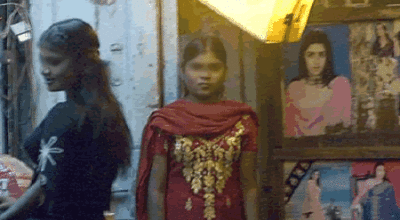India Church Network Tackles Growing Human Trafficking Problem
Eight out of every 10 missing people in the Gujarat state of India are sold to brothels. So says a newly released human rights report from DIG AK Jadeja.
The statistics defy belief. Three years ago, human rights watchers said more than 1.2 million children in India were sold into prostitution and as many as 100 million people in India are involved in trafficking-related activities. That number continues to grow.
The most likely victims of human trafficking are those living on less than a $1 a day. C.H. Dyer with Bright Hope International notes that, “People that are in extreme poverty will go to great measure to find security, food, just the basics of life.”
Desperation drove local churches to Bright Hope to ask for help.
“We know there’s a lot of prostitution and a lot of young girls that are forcibly put into prostitution in our community,” Dyer says. “What can we do to make a difference?'”
As part of the solution, Bright Hope developed a network of churches in India to raise awareness and build strategic partnerships. The three-pronged approach included awareness, rescue and rehabilitation.
An anti-trafficking program offers training for those who were involved in rescuing and rehabilitation programs for victims. The program hasn’t been without its challenges. Building trust takes time.
“Getting them out of the situation, working with the local authorities, working with the police to gain their confidence and the ability to go into these brothels and pull out the minors and offer the older women the chance to come out: this is all new in this rescue area,” Dyer says. “You take your time, you pray, and you get the advice of those who have gone before you.”
Over time, Dyer says people notice the impact of the programs. Despite the rise in human trafficking, there is success in rescuing and rehabing victims. Rehabilitation is focused on healing through professional biblical counseling to regain strength, hope and faith in God and His ability to restore them. Through job skills training, girls can have well-paying jobs as they rebuild their lives.
“The agencies we’re working with have documented lower rates of prostitution in those communities where they have done this with good planning, and that’s what we’re bringing to this: proven solutions and a proven God who changes lives,” Dyer says.
However, a successful rescue means there’s an angry pimp or gang lord. Dyer says some pastors and leaders involved with Bright Hope’s team have received death threats.
Taking on human trafficking means a church is entering the spiritual fray. Often, drugs or idolatry are involved. “It is dangerous. It is the front lines against evil,” Dyer explains. “We need to partner with them in prayer specifically, that the power of the Lord would come upon them and protect them and lead them as they do these good works in His name.”
The Bright Hope team is gearing up for another major foray in a few weeks. Dyer’s desire today is that everybody would pray for the churches involved in human trafficking around the world.
“Christ died for us,” Dyer says. “If we can’t go an extra mile for some of these young women—to pull them out and give them hope in Christ and a new life, what did Christ die for?”














































